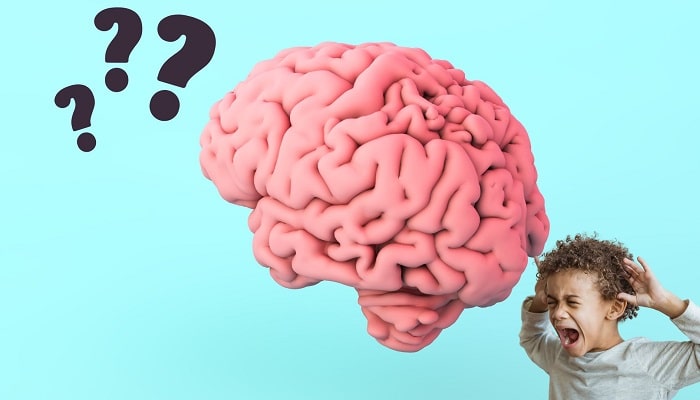The existence of the brain is very mysterious, a gelatinous mass that keeps our nervous system working and which is responsible for our thoughts, feelings and memories. You may have heard that “size doesn't matter”, but in the case of the brain, this seems to be true.
Recent research has shown that the brain increases in size by up to 3 times when we reach one month old!
What is the Brain?
The Brain is an organ of the human body responsible for coordinating the nervous system and its attributions such as speech, movement and hearing.
The brain is divided into three main parts: the forebrain (frontal lobe), the middle brain (temporal lobe), and the hindbrain (occipital lobe). The function of each of these parts of the brain is slightly different, but they all work together to allow daily activities to take place.
The brain is the most important organ in the human body as it is responsible for mental and physical functions. Without the brain, it would not be possible to think, feel or move.
Your brain size
Your brain size can affect your ability to make decisions, learn new skills and even your behavior.
The average size of a brain is approximately 1.4 kg. However, your brain size can vary depending on your age, gender and race.
Some studies show that women tend to have smaller brains than men. Some races, such as Asians and African Americans, also tend to have smaller brains than other races.
There is no conclusive evidence that brain size has anything to do with intelligence.
Your brain increases its size by up to 3 times in less than a month
Scientists believe that the size of the human brain can increase by up to three times over a lifetime. This is impressive considering that the human brain is the most complex organ in the body.
The increase in brain size may be due to a process called neurogenesis, which is the brain's ability to produce new nerve cells. Neurogenesis can occur in different areas of the brain and can affect memory, learning and other cognitive functions.
Scientists are studying how brain size can affect human behavior. Some studies suggest that brain size is related to intelligence, but there is no clear relationship between the two. Other studies suggest that brain size can affect personality and behavior.
Why does the brain increase in size up to 3 times?
The brain is one of Organs most important organs in our body, and it is constantly evolving. Why does the brain increase in size up to 3 times?
The brain grows in size because it is always adapting to new situations and learning new things. When you learn something, your brain creates new connections between neurons. These connections are important so that you can remember the information you learn.
In addition, the brain also increases in size because it needs more energy to function well. When you exercise, for example, your brain receives more oxygen and blood, which makes it work better.
However, the increase is not always 3 times, but millimeter things. The only time our brain is able to develop up to 3 times is during the first month of life, when the nervous system is at its working peak.
How does the brain increase in size?
It's no secret that the human brain is an extremely complex organ. But did you know that brain size can increase throughout life? That's right! The brain can increase in size in response to certain experiences and stimuli.
For example, research shows that the brains of professional musicians are significantly larger in certain areas compared to non-musicians. Also, the brain of someone who learns a new language can also increase in size.
Another example is the brain of professional athletes. Studies have shown that the size of the hippocampus – an important part of the brain responsible for memory – can increase in athletes who compete in high-intensity sports.
The brain can also adapt to changes in the environment around it. For example, if you are a heavy smoker, your brain may enlarge to compensate for the damage caused by smoking.
However, it's important to note that the brain can also shrink in size when exposed to certain stressors. For example, chronic stress can lead to hippocampal atrophy, which can negatively affect memory and other brain functions.
In short, the brain is an extremely complex and dynamic organ that can increase or decrease in size in response to everyday experiences and stimuli.
After all, did you like to know more about it? Let us know in the comments and don't forget to share with your friends and family.


